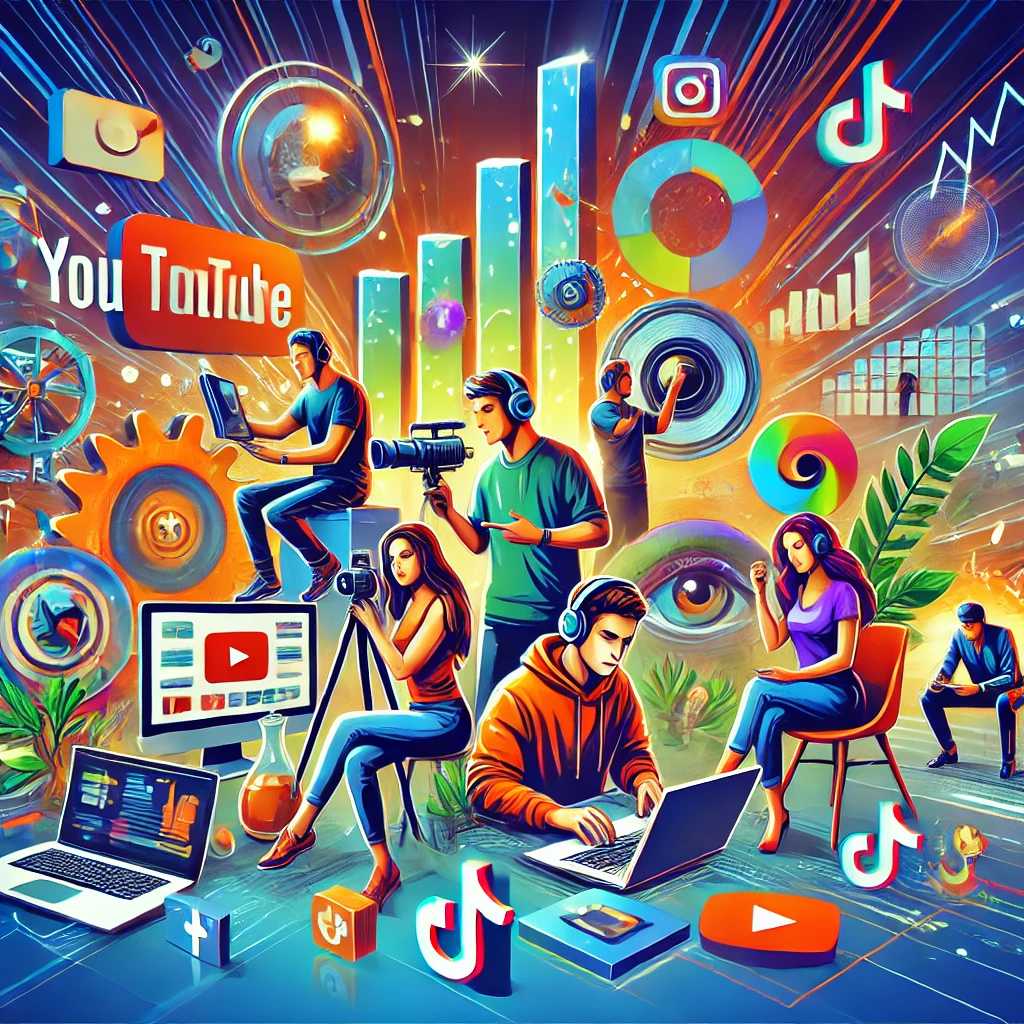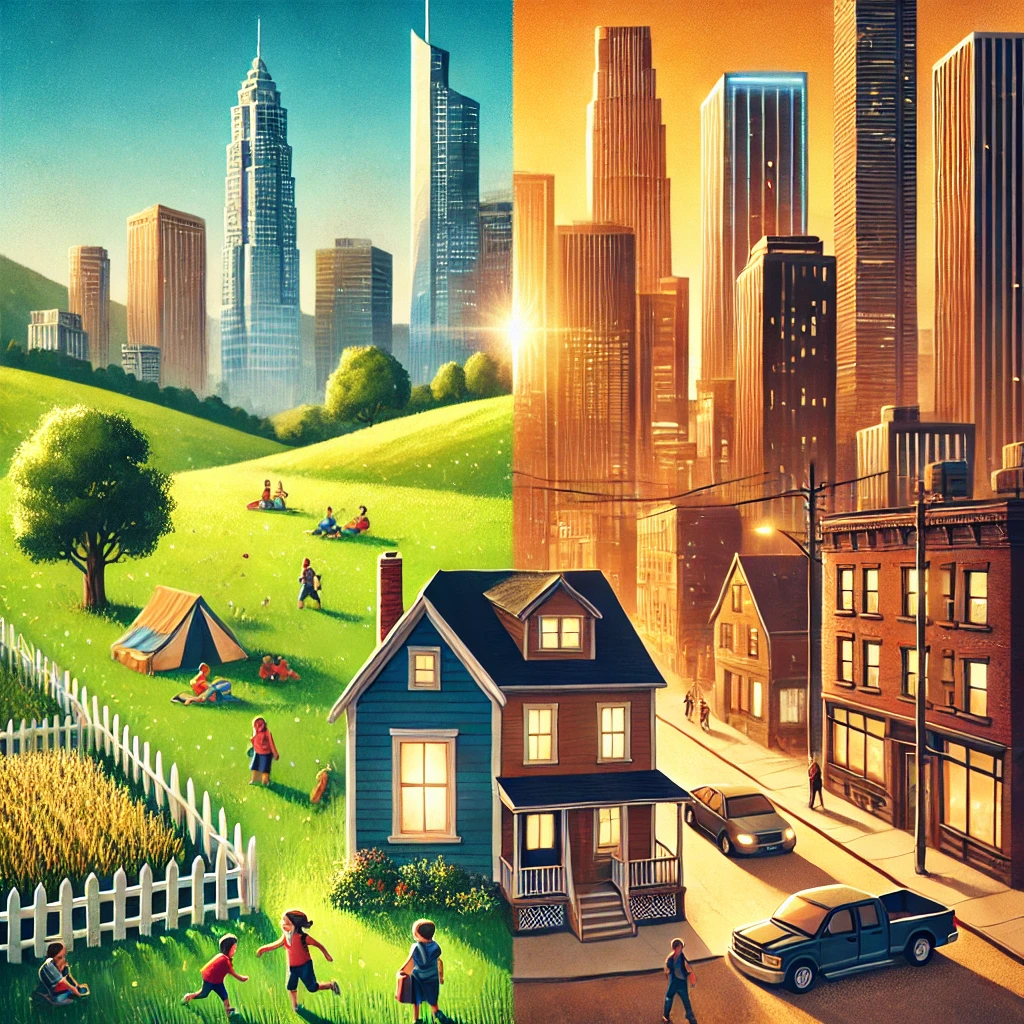Over the past ten years, the internet has evolved from a mere information hub into a dynamic platform for economic growth, creativity, and opportunity. Central to this evolution is the creator economy—a rapidly growing sector where individuals harness their skills, personalities, and content to build lasting careers. This new economy has democratized fame and financial success, allowing anyone with internet access to monetize their passions. In this article, we’ll examine how this movement has gained momentum, its effects on traditional industries, and its implications for aspiring creators.
What is the Creator Economy?
The creator economy encompasses the world of independent content creators who cultivate audiences and generate income through digital platforms such as YouTube, Instagram, TikTok, Patreon, Substack, and Twitch. These platforms equip creators with tools to monetize their content through ads, subscriptions, sponsorships, and direct payments from supporters.
Unlike traditional media, which depends on large studios, record labels, or publishers, the creator economy allows individuals to sidestep intermediaries and connect directly with their audiences. This change has not only empowered creators but has also disrupted conventional business models in entertainment, education, and commerce.
The Growth of the Creator Economy
1. Accessible Technology
Technological advancements have made it easier than ever to produce high-quality content. Modern smartphones come with professional-grade cameras, editing software is affordable or even free, and social media platforms offer built-in tools for enhancing videos and images. These innovations have lowered the barriers to entry, enabling anyone to start creating and sharing content.
2. Monetization Opportunities
Various platforms have introduced numerous ways for creators to earn money. YouTube’s Partner Program allows creators to earn revenue from ads, while Instagram and TikTok offer creator funds and tools for brand partnerships. Subscription-based models like Patreon and Substack provide creators with a steady income from their most dedicated fans.
3. Cultural Shifts
The pandemic accelerated the growth of the creator economy as people turned to digital platforms for entertainment, education, and community. Viewers sought authentic, relatable content, leading to increased demand for creators who could share expertise, entertain, or simply offer a sense of connection.
How People Are Making Careers Out of Content Creation
1. Building Personal Brands
A strong personal brand is essential for every successful creator. Creators build trust and loyalty with their audiences by being authentic and consistent. Whether they are makeup artists, gamers, fitness instructors, or storytellers, their personalities and unique perspectives set them apart.
2. Diversifying Revenue Streams
Successful creators often diversify their income to avoid relying on a single platform. Revenue streams may include:
- Ad Revenue: Earnings from ads on platforms like YouTube or podcasts.
- Sponsorships: Paid collaborations with brands.
- Merchandising: Selling branded products such as clothing, books, or digital courses.
- Memberships: Offering exclusive content to paying subscribers on platforms like Patreon.
- Affiliate Marketing: Earning commissions by promoting products or services.
3. Leveraging Data and Analytics
Creators use data to understand their audience and tailor their content. Platforms provide detailed analytics, including audience demographics, engagement rates, and video watch times. This data helps creators refine their strategies to appeal to both fans and potential sponsors.
4. Collaborations and Networking
Creators often collaborate with each other or with brands to expand their reach. Cross-promotions and co-created content introduce them to new audiences, enhancing their presence in the digital space.
The Impact of the Creator Economy
1. Redefining Careers
The concept of a career has been transformed by the creator economy. The traditional 9-to-5 office job is no longer the only career path available. Now, individuals can turn their passions into full-time professions. Be it gaming, teaching, or creating art, creators can earn a living doing what they love.
2. Challenging Traditional Media
Creators often wield more influence than traditional media outlets. For instance, an Instagram influencer can generate more sales than a TV commercial. This shift has prompted brands to rethink their marketing strategies, dedicating larger budgets to partnerships with influencers.
3. Global Connectivity
Creators help bridge cultural and geographical divides, connecting people worldwide. Platforms like YouTube and TikTok enable creators to reach audiences across different countries, fostering a shared digital culture.
4. Supporting Niche Communities
Unlike mainstream media, which targets broad audiences, creators often cater to niche communities. Whether it’s a knitting channel or a newsletter on cryptocurrency, creators can cultivate loyal followings by focusing on specific interests.
Challenges in the Creator Economy
While the creator economy has vast potential, it also comes with challenges:
- Platform Dependence: Creators rely heavily on algorithms, policy changes, and the stability of platforms.
- Burnout: The constant pressure to produce new content can lead to burnout.
- Income Uncertainty: Earnings can vary based on trends, audience behavior, and advertiser demand.
- Competition: The low entry barrier results in a crowded space, making it difficult to stand out.
Future of the Creator Economy
As the creator economy evolves, new trends are emerging:
- Web3 and Decentralization: Blockchain technology and NFTs enable creators to own and directly monetize their content.
- Creator Tools: Startups are developing tools to help creators streamline their workflows, manage finances, and grow their audiences.
- Hybrid Models: Traditional media companies are collaborating with digital creators, merging old and new content creation worlds.
How to Get Started as a Creator
- Identify Your Niche: Focus on a topic you’re passionate about and that has an audience.
- Choose the Right Platforms: Start with platforms that suit your content style, such as YouTube for videos or Instagram for visuals.
- Invest in Quality: While perfection isn’t necessary, good equipment and editing tools can make your content stand out.
- Engage with Your Audience: Build a community by responding to comments, hosting live streams, or creating interactive content.
- Be Consistent: Consistency helps build trust and retain your audience.
Conclusion
The rise of the creator economy has revolutionized our perception of careers, creativity, and entrepreneurship. It has enabled countless individuals to turn their passions into professions, reshaping industries and cultural norms. As this movement grows, opportunities for creators will continue to expand, making it an exciting time for anyone interested in content creation.




